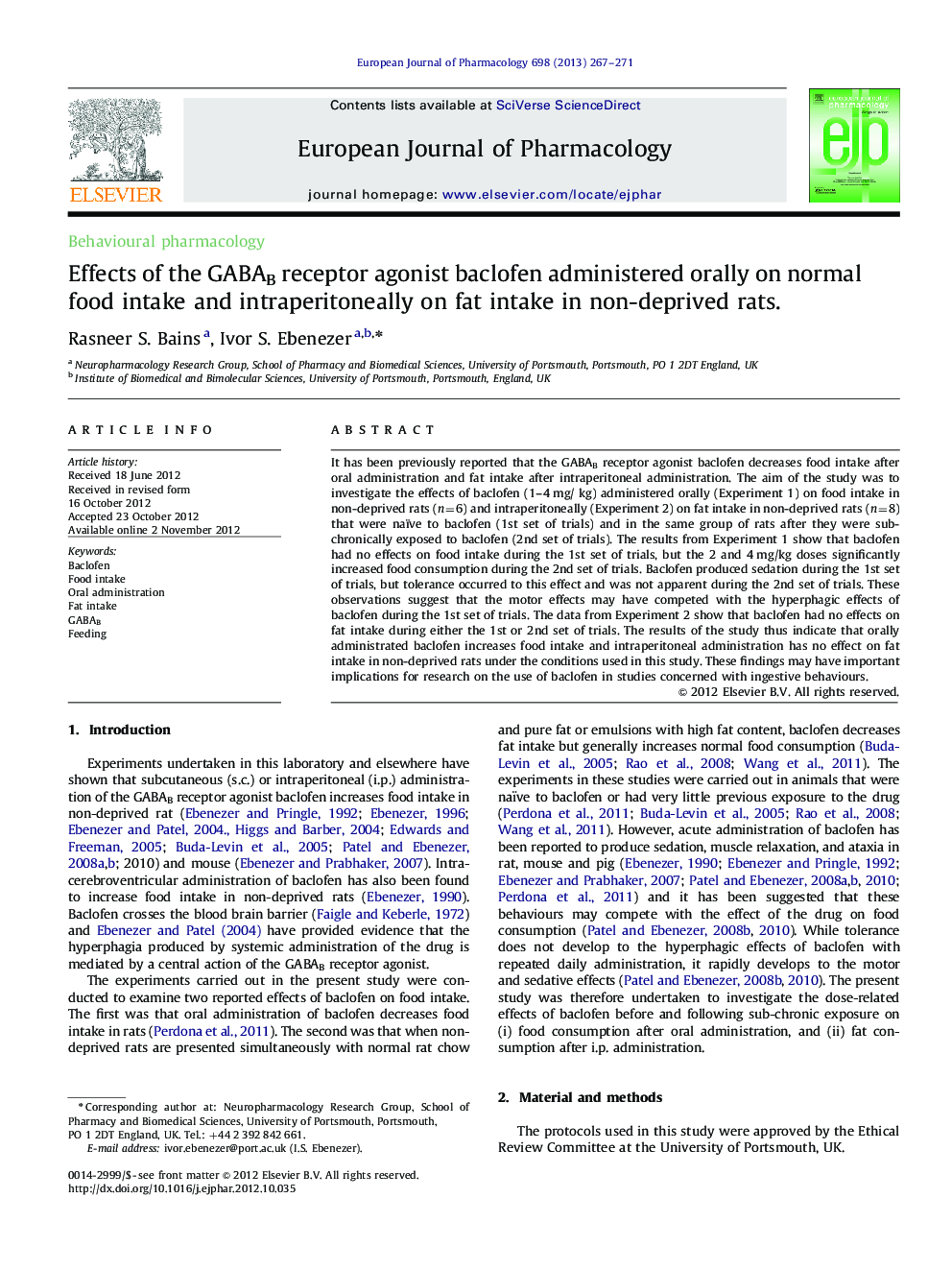| Article ID | Journal | Published Year | Pages | File Type |
|---|---|---|---|---|
| 5828966 | European Journal of Pharmacology | 2013 | 5 Pages |
Abstract
It has been previously reported that the GABAB receptor agonist baclofen decreases food intake after oral administration and fat intake after intraperitoneal administration. The aim of the study was to investigate the effects of baclofen (1-4Â mg/ kg) administered orally (Experiment 1) on food intake in non-deprived rats (n=6) and intraperitoneally (Experiment 2) on fat intake in non-deprived rats (n=8) that were naïve to baclofen (1st set of trials) and in the same group of rats after they were sub-chronically exposed to baclofen (2nd set of trials). The results from Experiment 1 show that baclofen had no effects on food intake during the 1st set of trials, but the 2 and 4Â mg/kg doses significantly increased food consumption during the 2nd set of trials. Baclofen produced sedation during the 1st set of trials, but tolerance occurred to this effect and was not apparent during the 2nd set of trials. These observations suggest that the motor effects may have competed with the hyperphagic effects of baclofen during the 1st set of trials. The data from Experiment 2 show that baclofen had no effects on fat intake during either the 1st or 2nd set of trials. The results of the study thus indicate that orally administrated baclofen increases food intake and intraperitoneal administration has no effect on fat intake in non-deprived rats under the conditions used in this study. These findings may have important implications for research on the use of baclofen in studies concerned with ingestive behaviours.
Related Topics
Life Sciences
Neuroscience
Cellular and Molecular Neuroscience
Authors
Rasneer S. Bains, Ivor S. Ebenezer,
